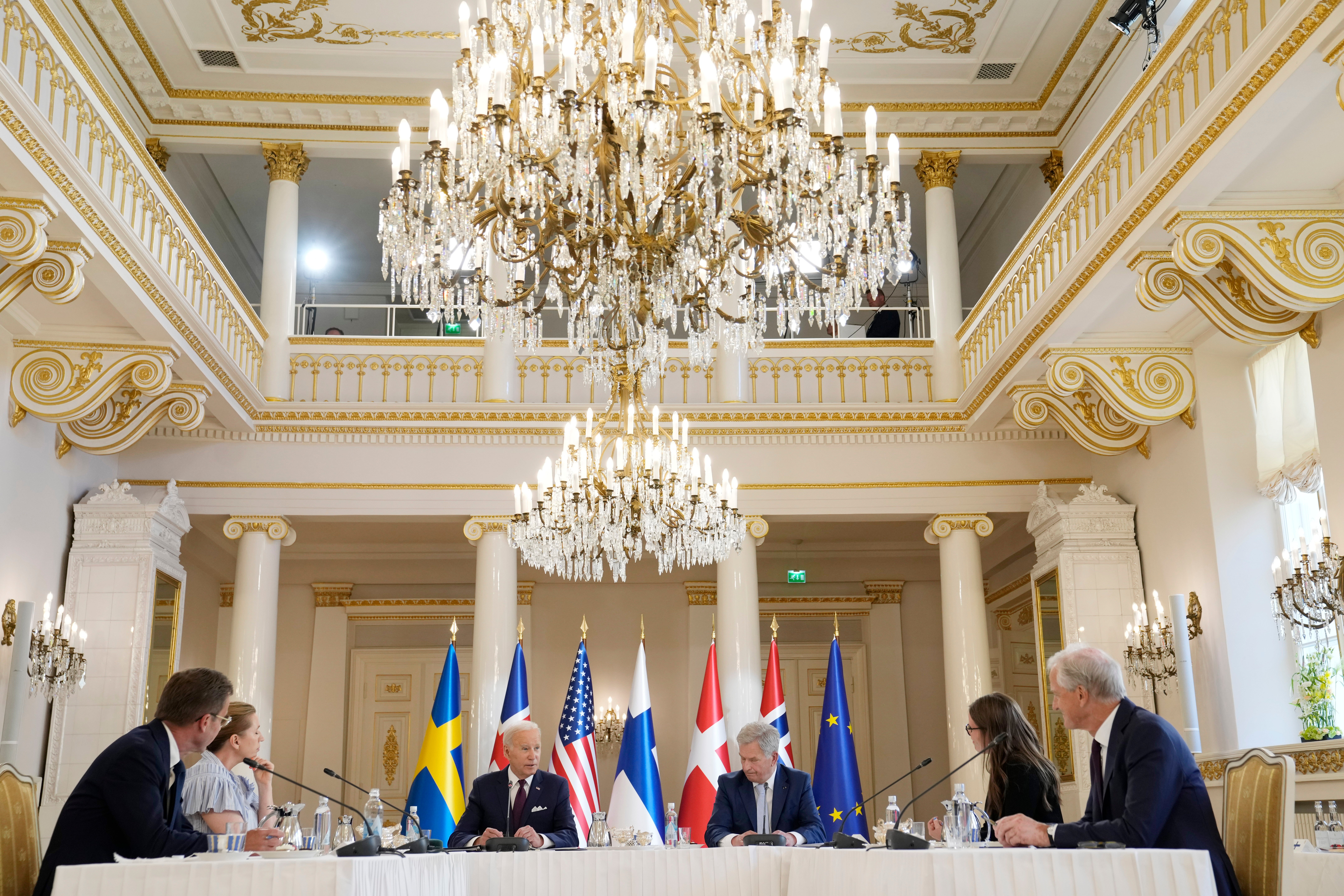Sweden, Finland and Switzerland are considering security links with US National Guard, general says
Switzerland, Finland and Sweden are considering joining the U.S. National Guard’s security partnership program in a further expansion of U.S. military ties across Europe after Russia’s invasion of Ukraine

Your support helps us to tell the story
From reproductive rights to climate change to Big Tech, The Independent is on the ground when the story is developing. Whether it's investigating the financials of Elon Musk's pro-Trump PAC or producing our latest documentary, 'The A Word', which shines a light on the American women fighting for reproductive rights, we know how important it is to parse out the facts from the messaging.
At such a critical moment in US history, we need reporters on the ground. Your donation allows us to keep sending journalists to speak to both sides of the story.
The Independent is trusted by Americans across the entire political spectrum. And unlike many other quality news outlets, we choose not to lock Americans out of our reporting and analysis with paywalls. We believe quality journalism should be available to everyone, paid for by those who can afford it.
Your support makes all the difference.Switzerland, Finland and Sweden are considering joining the U.S. National Guard's security partnership program in a further expansion of American military ties across Europe after Russia's invasion of Ukraine.
The chief of the National Guard, Gen. Dan Hokanson, was expected to announce the discussions with each country, which have not previously been reported, in remarks at the National Press Club on Thursday. The Associated Press obtained an advance copy of Hokanson's speech.
Interest by the three countries in the program is the latest indication of how Russia’s war has led each of those nations to take steps that consider ending long-standing policies of military nonalignment.
Finland and Sweden were the most recent countries to seek NATO membership; Finland joined in April and Sweden is waiting for approval. Longtime-neutral Switzerland began considering easing export controls on sending weapons to active war zones earlier this year.
The National Guard's State Partnership Program is a lesser-known but key military instrument for U.S. troops to build relationships with foreign militaries by conducting regular training and education exchanges with young officers. It partners National Guard units with host nations.
The program can help foreign military better shape their own operations to reflect Western military organization and equipment. That is something seen as key to getting a host of Eastern European nations on NATO standards to ease how multinational armies could conduct operations.
The National Guard program began 30 years ago after the collapse of the Soviet Union as former Soviet states looked for ways to move away from their communist-styled military organization. Ukraine was one of the first to join the National Guard program, partnering with California's National Guard. From the earliest days of Russia's invasion, Ukraine's air force has reached out for support to the California National Guard partners it trained with.
Sweden and neighbor Finland ended their policy of military nonalignment after Russia invaded Ukraine in February 2022. Both applied for NATO membership, seeking protection under the organization’s security umbrella.
Finland, which shares a more than 800-mile (1,300-kilometer) border with Russia, joined NATO in April. But Sweden, which has avoided military alliances for more than 200 years, had previously been delayed due to objections from Turkey. But earlier this month, Turkey agreed to remove one of the last major roadblocks to Sweden's membership.
NATO Secretary-General Jens Stoltenberg said Turkey had agreed to support Sweden’s NATO bid –- by putting the issue to a vote in parliament -- in return for deeper cooperation on security issues and a promise from Sweden to revive Turkey’s quest for European Union membership.
The war in Ukraine has also prompted Swiss government officials to grapple with their country’s longtime conception of neutrality, which is enshrined in the constitution and prohibits exporting weaponry to active war zones.